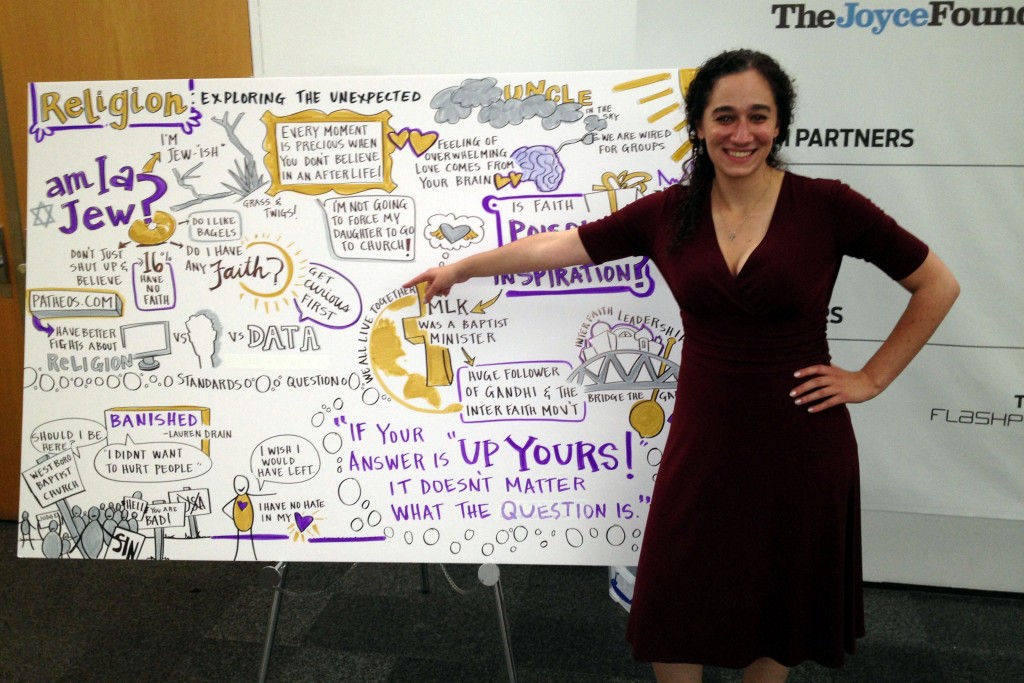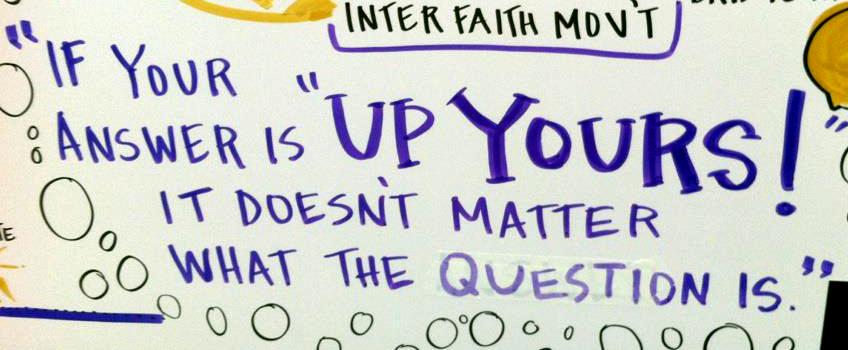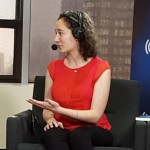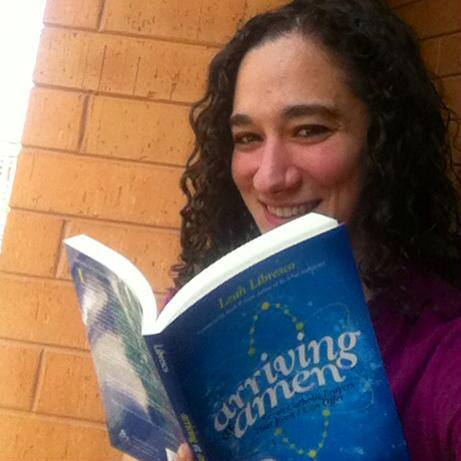I had a lovely time at Chicago Ideas Week, and my 15 minute talk on the Ideological Turing Test and how to have better fights should be online in about a month. For a preview of what my co-panelists and I talked about, you can check out the image above. Chicago Ideas Week contracted with Ink Factory to have posters drawn during each of the talks that highlighted key ideas. I’m standing in front of the illustration they generated during Religion: Exploring the Unexpected. I’m trying to point at the bit on the left that was drawn during my talk. (It’s the bit that where it says ‘DATA’). Though I was also responsible for this:
I’ll bet a lot of you can accurately guess the context. (It’s something a little more specific and nerdier than just “Wouldn’t it be nice if everyone were nice”).
I may not be able to give you the video from Chicago yet, but I can link you to a radio interview I did on The Drew Marshall show a week ago. We talked about my conversion, the parts of living a Christian life that I find hardest, and I did a quickie pitch for Bayesian statistics over frequentist methods. (In my defense, Drew was asking for it). You can listen to the interview here.
I wasn’t talking much about the Ideological Turing Test on the program, but I was thinking about it afterwards. After Drew had thanked me, and I was off the line, his co-host said I didn’t sound like a Christian. I don’t know whether it was the math or the Dungeons and Dragons analogy or what, but it reminded me of when, in the first year of the Turing Test, one of the Christian competitors skated to victory when a lot of atheists assumed Christians wouldn’t find SMBC funny. Run into enough anomalies and you might want to wonder whether it’s your model or the world that’s wrong.













